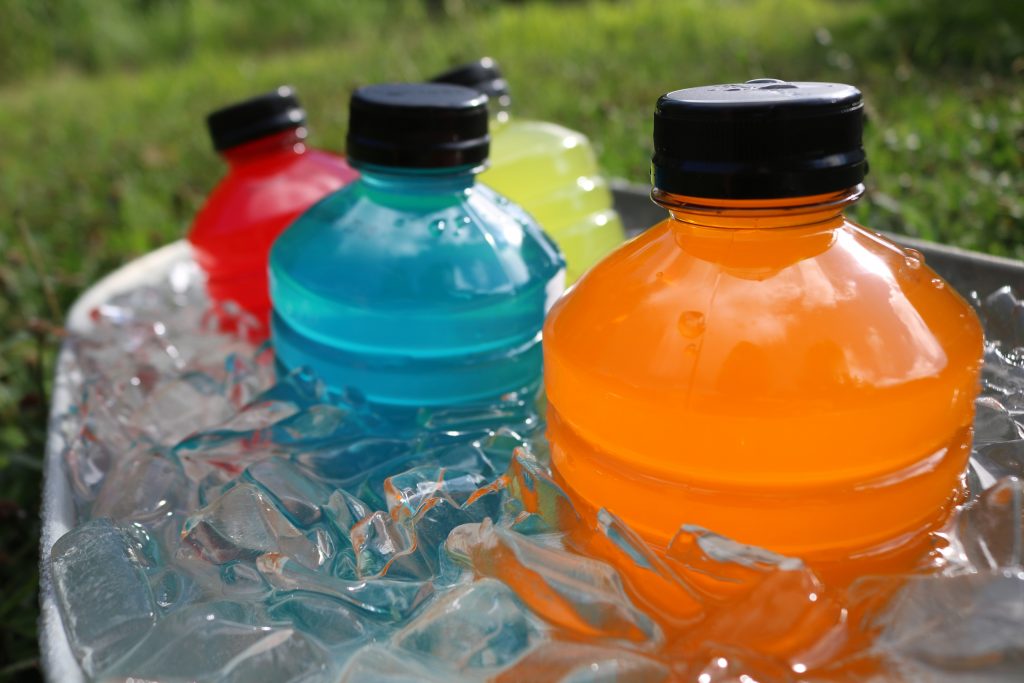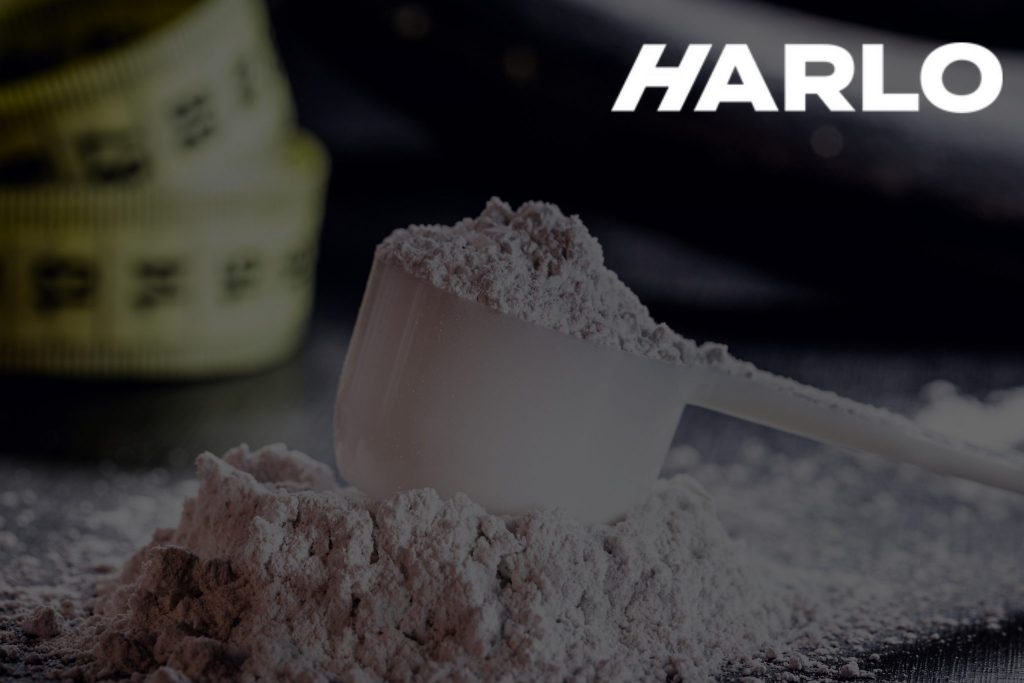In the world of fitness and athletic performance, hydration is key. As our bodies endure strenuous physical activity, we lose valuable electrolytes and minerals through sweat, which can impede our performance and overall well-being. This is where sports drinks come into play. These specially formulated beverages are designed to replenish our bodies with the necessary electrolytes, fluids, and carbohydrates needed to stay properly hydrated and maintain peak performance levels. While water is vital for hydration, sports drinks offer an extra boost by replenishing the nutrients that are lost during intense physical exertion. Whether you’re a professional athlete or simply enjoy an active lifestyle, understanding the purpose of these drinks and how they can enhance your performance is essential. In the following paragraphs, we will delve deeper into the benefits and considerations of sports drinks, shedding light on their role in supporting and maximizing athletic performance.
Importance of Hydration During Exercise
Hydration is crucial during exercise as water plays several important roles in the body. Firstly, water helps regulate body temperature through sweat. As we exercise, our body temperature rises and sweating helps to cool us down. However, this process can lead to significant fluid loss and dehydration if water is not replenished. Drinking enough water before, during, and after exercise is therefore essential to maintain a healthy body temperature and prevent overheating.
Secondly, water is important for lubricating joints and cushioning organs. As we move and exert force during exercise, our joints may experience increased pressure and friction. Sufficient hydration ensures that joint movements remain smooth and fluid, reducing the risk of injury or discomfort. Additionally, water helps to cushion vital organs, protecting them from impact and damage during intense physical activity.
Furthermore, adequate hydration is critical for optimal athletic performance. Dehydration can lead to fatigue, decreased endurance, and impaired concentration. When we exercise, our muscles require water to function optimally. Without proper hydration, muscle cells have difficulty carrying out essential processes, such as efficient energy production and waste removal. This can result in decreased strength and performance.
The Debate: Water vs. Sports Drinks
The debate between water and a sports drink as a source of hydration during workouts has been ongoing for some time. Plain water is undoubtedly an excellent choice to hydrate while exercising. It is easily accessible, affordable, and has no added sugars or calories. Water helps the body maintain its temperature, regulate bodily functions, and replenish fluids lost through sweat.
On the other hand, sports drinks have gained popularity for their ability to provide electrolytes, carbohydrates, and other nutrients that the body may need during prolonged or intense physical activity. These drinks claim to enhance performance and improve endurance, especially in activities lasting longer than one hour. Furthermore, their pleasant taste can encourage individuals to drink more, thus promoting hydration.
However, sports drinks also have drawbacks. Firstly, they often contain high levels of sugar, which can be detrimental to overall health, especially when consumed excessively. Additionally, the added calories in sports drinks may counteract the calorie-burning benefits of exercise for those trying to maintain or lose weight. Lastly, many individuals engage in moderate workouts where the additional electrolytes and carbohydrates provided by sports drinks are not necessary. In such cases, plain water is sufficient to meet the body’s hydration needs.
Understanding Electrolytes in Sports Drinks
Electrolytes play a crucial role in maintaining proper fluid balance and aid in optimal athletic performance during intense exercise. These charged minerals, including sodium, potassium, calcium, and magnesium, are essential for the functioning of muscles, nerves, and cells.
During intense exercise, the body sweats to dissipate heat, and with the sweat, electrolytes are lost. This loss of electrolytes can disrupt the balance within the body, leading to dehydration and hindered athletic performance. To counteract this, sports drinks containing electrolytes are commonly consumed by athletes.
Electrolytes in sports drinks help replenish the lost minerals and maintain fluid balance, preventing dehydration. Sodium, in particular, plays a crucial role as it helps the body retain fluid and aids in the absorption of glucose and water in the intestines. This ensures that the body stays hydrated and well-fueled during exercise.
Potassium is another essential electrolyte that contributes to muscle contractions and nerve function. It helps prevent muscle cramps and fatigue, enabling athletes to perform at their best. Calcium and magnesium are also necessary for muscle function, and their deficiency can lead to muscle weakness and impaired performance.
By understanding the importance of electrolytes in sports drinks, athletes can optimize their athletic performance. Adequate intake of these minerals ensures proper hydration, reduced muscle cramps, improved muscle function, and overall endurance during intense exercise.
The Role of Sugar in Sports Drinks
Sugar plays a crucial role in sports drinks by providing a quick source of energy to athletes during their workouts. In sports drinks, different forms of sugar are utilized to enhance performance and replenish glycogen stores.
One common form of sugar used in sports drinks is sucrose, which is derived from sugar cane or beet. Sucrose is composed of glucose and fructose, two simple sugars that are easily absorbed by the body. Glucose, another form of sugar often found in sports drinks, is rapidly broken down and utilized by the muscles, contributing to the athlete’s energy levels.
During intense physical activities, the body relies on glycogen, a stored form of glucose, for energy. Consuming sugar in sports drinks helps maintain glycogen levels in the muscles, preventing fatigue and promoting endurance. Additionally, sugar contributes to the osmolality of the drink, facilitating hydration by increasing fluid absorption in the body.
However, it is essential to consider the effects of sugar on energy levels during workouts. Consuming excessive amounts of sugar can lead to a spike in blood sugar levels, followed by a rapid drop, causing a temporary energy crash. To avoid this, sports drinks should contain an optimal balance of sugar to ensure a steady release of energy and prevent any detrimental effects.
Practical Tips for Staying Hydrated During Workouts
Staying hydrated during workouts is essential for optimal performance and preventing dehydration. Here are some practical tips to help you stay properly hydrated:
1. Sip water throughout the day: Begin hydrating before your workout by sipping water throughout the day. This will help ensure that you start your workout already properly hydrated. Additionally, continuing to sip water during your workout helps replenish fluids lost through sweat.
2. Monitor urine color: One way to gauge your hydration level is by monitoring the color of your urine. Pale or clear urine is a good indication that you are adequately hydrated. If your urine is dark yellow or amber, it is a sign that you need to increase your water intake.
3. Drink sports drinks for intense or prolonged workouts: For workouts lasting longer than an hour or those that are particularly intense, consider opting for sports drinks. These drinks contain electrolytes that help replenish minerals lost through sweat, enhancing your performance and preventing muscle cramps.
4. Set reminders: If you struggle to remember to drink water throughout the day, set reminders on your phone or use water tracking apps. These reminders will prompt you to sip water regularly, helping you maintain proper hydration levels.
5. Carry a water bottle: Make it a habit to always carry a water bottle with you, whether you’re at the gym or outdoors. Having water readily available will encourage you to drink more frequently.
Remember, staying properly hydrated is not only crucial for your workout performance but also for overall health. By following these practical tips, you can ensure that you stay adequately hydrated during workouts to perform at your best.
Personalized Hydration Strategies
Personalized hydration strategies are essential to ensure optimal performance, well-being, and overall health. While it is important to consult a healthcare professional or nutritionist for personalized hydration recommendations, there are a few general strategies that can be considered.
Firstly, it is vital to assess individual hydration needs based on factors such as age, gender, weight, physical activity level, and climate. This can help determine the ideal amount of fluids required on a daily basis. It is generally recommended to consume at least 8 cups (64 ounces) of water per day, but this may vary depending on the individual.
Experimenting with different hydration methods is also crucial. Some individuals may prefer plain water, while others may find it easier to stay hydrated with flavored water, herbal tea, or fruit-infused water. It is important to find what works best for you and what keeps you motivated to consume an adequate amount of fluids throughout the day.
Additionally, timing is key when it comes to personalized hydration strategies. It is recommended to drink water consistently throughout the day rather than consuming large amounts at once. This helps maintain hydration levels and prevents dehydration.
Alternatives to Sports Drinks
Sports drinks have long been favored by athletes for their ability to replenish electrolytes and rehydrate the body during intense physical activity. However, there are several alternatives to sports drinks that can provide similar benefits in a more natural and cost-effective way.
Water is the simplest and most readily available alternative to sports drinks. It is crucial for maintaining proper hydration and can be consumed before, during, and after exercise. While water does not contain electrolytes, it effectively quenches thirst and fuels the body’s performance.
Coconut water is another excellent alternative to sports drinks. It is a natural source of electrolytes, including potassium, sodium, and magnesium. These electrolytes help restore hydration levels and maintain proper muscle function. Additionally, coconut water is rich in antioxidants and has a naturally sweet taste, making it a refreshing choice for athletes.
For those who prefer homemade options, there are several natural electrolyte drinks that can be easily prepared. One popular recipe includes mixing water, lemon juice, honey, and a pinch of sea salt. Lemon juice provides vitamin C and antioxidants, while honey acts as a natural source of carbohydrates for energy. Sea salt replenishes sodium levels lost through sweat.

Conclusion
In conclusion, while sports drinks can offer several benefits for athletes during intense workouts and physical activities, there are also drawbacks that need to be taken into consideration. The benefits of sports drinks include replenishing electrolytes, providing energy through carbohydrates, and aiding in hydration. However, these benefits come with drawbacks such as high sugar content, artificial ingredients, and the potential for weight gain. When deciding whether or not to use sports drinks for everyday workouts, several factors need to be considered. The intensity and duration of the workout, individual needs and preferences, and overall dietary goals should all be taken into account.
For those engaging in long and high-intensity workouts, sports drinks might be beneficial to replenish the lost electrolytes and provide energy. However, for shorter and less intense workouts, water or healthier alternatives might be sufficient. It is important to consult with a healthcare professional or a sports nutritionist to determine the most suitable approach based on individual needs and goals. Ultimately, making an informed decision and finding the right balance is crucial in maximizing the benefits of sports drinks while minimizing potential drawbacks.

